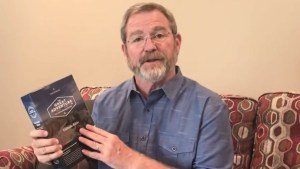The Bible is among the best selling books of all time, and a large number of people in Western countries own a copy of it.
However, relatively few people spend the time they should with it.
One of the reasons behind this reality is the fact that the Bible is not like any other book you might own. It isn’t formatted like modern novels and spans numerous literary genres.
Additionally, many who do open the Bible too quickly put it down, confused by the ancient language and unable to discern a particular “storyline.”
However, reading the Bible doesn’t have to be this difficult. In fact, the Bible can be read in various ways that bring the Word of God to life in the reader, truly changing a person’s heart.

Read more:
11 Thoughts to help you value the Bible
Start with the Gospels
Reading the entire Bible seems daunting, so first open the Gospels. This can be much easier to grasp and the names and episodes within them are more familiar. In particular, start with the Gospel of Mark, the shortest Gospel. Reading Mark can give you a sense of accomplishment as well as an interest to see how the other Gospel writers narrate the life of Jesus.
Many Christians will simply read through all four Gospels over and over again, digging deeper into the heart of Jesus and his message. For the reader who doesn’t know where to start, the Gospels might be the perfect place.
Read the Bible according to the “Bible Timeline”
One of the most influential Bible studies in recent years has been Jeff Cavin’s “Great Adventure Bible Study,” also known as the “Bible Timeline.” In it, the study “takes participants on a journey through the entire Bible. They will go deep into each period of salvation history and discover the amazing story woven throughout all of Scripture. Using a unique color-coded system, they will learn the major people, places, and events of the Bible and see how they all come together to reveal the remarkable story of our faith.”
The beauty of the “Bible Timeline” is that it dissects the Gospel and reveals the storyline that begins in Genesis and ends in the New Testament. Reading the Bible in this way allows you to “skip” some of the more confusing parts of the Bible and get at the “core” story of salvation history.
If you want to better understand the Bible and how its organized, this is probably one of the best ways to get a full picture.

Read more:
How not to read the Bible

Read more:
New Bible is designed to make Catholics scripture-literate

